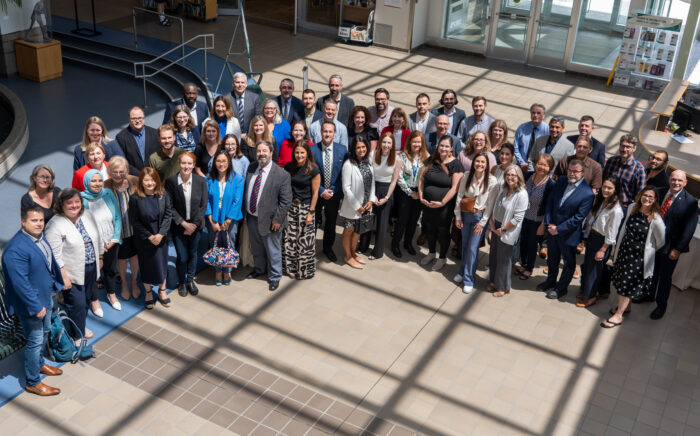In Uncertain Times, a Systemic Approach to Innovation Is Essential
Posted on February 28, 2022Just like strategy, planning, or budgeting, innovation is a discipline. As Schulich ExecEd students well know, sustained innovation requires an understanding of the power of accessing people’s creativity and a methodical view of the innovation process. That view links the mission to organizational structure, processes and reward systems.
For our purposes, creativity is the imagination to create something new, unique, or unexpected; innovation, on the other hand, is applied creativity that delivers new value. In other words, innovation is creativity with purpose.
Organizations, of course, can and do innovate. The problem is that not enough organizations accord the innovation process the sort of thoughtful, sustained attention it merits. Typically, innovation happens in one of two ways:
- Either innovation emerges in response to a crisis, such as ghost kitchens for restaurants or ‘Work from Home’ during a pandemic.
- Some individual, or small group of individuals, champions a specific innovation.
Very often, the benefits of the innovation are useful but limited. Once the crisis has passed, or certain individuals responsible for the innovation have moved on, the organization is left with no lasting capacity for ongoing innovation.
How Can Companies Establish Sustained Innovation?
The challenge is to have organizations — public, private, large and small — go from a culture of “innovation by accident” to one in which a sustained organizational commitment to innovation is baked into the organization’s DNA.
It’s true, organizations face increasingly complex challenges. Today all organizations’ dashboards include pandemic restrictions, economic constraints, employee fatigue to name a few with a surround sound of challenges including changing demographics, increased customer and citizen expectations, rapidly changing technologies, and fewer available resources.
In a paper on health services reform, Dr. Sholom Glouberman and Dr. Brenda Zimmerman address the difference between complicated and complex challenges and capture the key insight that analysis, planning, and coordination are not enough in dealing with complexity. Creativity and innovation are essential to innovation.
This understanding is echoed in the World Economic Forum’s The Future of Jobs Report, which predicted what will be the most in-demand skills by 2025. Can you guess the top three skills? They were:
- Innovation
- Complex problem-solving
- Creativity and originality
As Henry Mintzberg out of McGill notes, “When the world is predictable, you need smart people. When the world is unpredictable, you need adaptable people.” Is your organization ready to thrive during the uncertainty ahead?
Sharpen Your Innovation Leadership at Schulich ExecEd
According to the report, within the next five years, 50% of the world’s workers will require re-skilling or up-skilling. Thankfully, Schulich ExecEd offers streamlined and highly actionable certification for leaders to take charge of their company’s future.
As organizations have moved from working in relative stability pre-pandemic to exploring creative uncertainty – the importance of a systemic approach to innovation has become critical, requiring both changing mindsets and ever-more comprehensive innovative and creative toolkits.
If you want to learn more about our innovation-focused programs, don’t wait. Our Masters Certificate in Innovation Leadership is open for enrolment right now. Or, you can pace your learning by taking one of the certificates below, which comprise the Masters Certificate.
Need some help finding the perfect program for your career path? Take ten minutes out of your day and chat with one of our advisers today.
*
 Lee-Anne McAlear is the program director for Schulich ExecEd’s Masters Certificate in Innovation Leadership.
Lee-Anne McAlear is the program director for Schulich ExecEd’s Masters Certificate in Innovation Leadership.
Related Articles

Three Leadership Lessons from Movie Production
June 17, 2024
Unlocking the Future: Empowering Municipal Leaders in Ottawa Through Strategic Partnership / Déverrouiller l’avenir : accroître le pouvoir des dirigeants aux dirigeants municipaux d’Ottawa les moyens d’agir grâce à un partenariat stratégique
June 12, 2024










